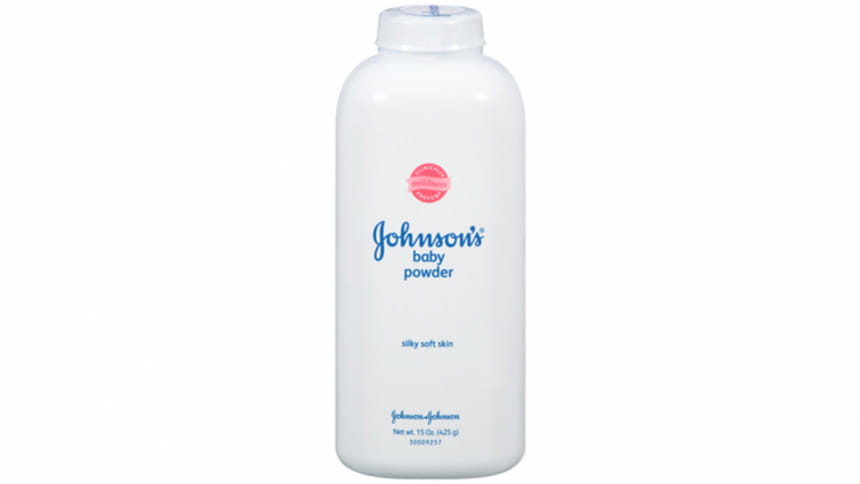Johnson & Johnson hit with $72m damages in talc-cancer case

A jury in the US state of Missouri has ordered Johnson & Johnson (J&J) to pay $72m (£51m) to the family of a woman who claimed her death was linked to use of the company's Baby Powder talc.
Jackie Fox from Birmingham, Alabama died of ovarian cancer last year, aged 62, having used the talc for decades.
Her family argued that the firm knew of talc risks and failed to warn users.
J&J denied the claim and is said to be considering an appeal. Researchers say links with ovarian cancer are unproven.
A company spokeswoman said: "We have no higher responsibility than the health and safety of consumers, and we are disappointed with the outcome of the trial.
"We sympathise with the plaintiff's family but firmly believe the safety of cosmetic talc is supported by decades of scientific evidence."
OTHER CASES PENDING
The verdict at the end of the three-week trial was the first time damages have been awarded by a US jury over talc claims.
More than 1,000 similar cases are pending nationwide and lawyers said thousands more could now be filed.
The jury in Fox's case deliberated for five hours before finding Johnson & Johnson liable for fraud, negligence and conspiracy.
The award constituted $10m in damages and $62m in punitive damages.
"This case clearly was a bellwether and clearly the jury has seen the evidence and found it compelling," said Stanford University law professor Nora Freeman Engstrom. "The jury was distressed by the company's conduct."
However, she said the size of the award was unlikely to survive.
"Big jury verdicts do tend to be reined in during the course of the appellate process and I expect that to be the case here," she said.
'SMALL RISK'
Cancer Research UK says evidence for a link between talc use and ovarian cancer is "still uncertain".
"Even if there is a risk it is likely to be fairly small," the charity says.
Ovarian cancer charity Ovacome says causes of the disease are still unknown but are likely to be "a combination of many different inherited and environmental factors, rather than one cause such as talc".
It says that in 2003, results of 16 studies involving 12,000 women showed that using talc increased the risk of ovarian cancer by around a third, and that a 2013 review of US studies involving 18,000 women had similar results for genital, but not general, talcum powder use.
However, it warns that studies of this type "can suffer from bias" and there were "uncertainties" around the results.
"A large well-designed American study in 2000 involving nearly 80,000 women found no link between using talc and the risk of ovarian cancer," it says.
The charity says that even if using talc does raise the ovarian cancer risk by a third, "to put it into context, smoking and drinking increases the risk of oesophageal cancer by 30 times".
"Ovarian cancer is a rare disease, and increasing a small risk by a third still gives a small risk."

 For all latest news, follow The Daily Star's Google News channel.
For all latest news, follow The Daily Star's Google News channel. 








Comments